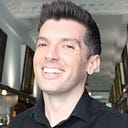Exiliado: The Armour of a Queer Canon (or La Que Puede, Puede)
I don’t know what it is that initially struck me about the short video from an NPR Tiny Desk Concert that came up on my Instagram feed. On first impulse, it may have been the quirky haircut and hat on Ca7riel and Paco Amoroso, respectively. After watching the entire performance on YouTube several times, I realise it’s the sheer joy of it.
The video currently stands at 11 million views. NPR Tiny Desk Concerts have wildly fluctuating viewing figures, anything from 60k for an artist you’ve never heard of, to about 5 million for the recent Dua Lipa video. Except I’d never heard of Ca7riel and Paco Amoroso. 11 million views feels like a triumph.
I’ve been obsessed with it. The talent of the band to merge trap music with more traditional beats, electronic music with jazz. The whole energy that comes at you from the performance in such a cramped space. Ca7riel’s facial expressions. The slyness of members in the band wearing their US visas printed on their t-shirts.
All of which led me to Ca7riel and Paco Amoroso’s newest album, Baño Maria. The provocation of the front cover, with both artists naked in a hot tub together, their legs splayed out against each other. There’s a marketing video of them making out. In an interview, they talk about having studied music at school and the gatekeeping of classical music institutions (music police, as they refer to it) and how they threw all that out the window and chased what they actually wanted to do. “Ahora somos esta mierda que hacemos hoy en día.”
Talented performers who are making the music they want to do. They sing about sex and nights out, weaving in jokes and giving the impression that they just don’t give a fuck about anyone’s opinion.
I think about the way musicians make music, and how opposed it feels compared to a writer. Or at least the idea I’ve been falling into about writers. You can write a song, record it, and then play it live somewhere or post it online. There’s an immediacy to it, if you want. The connection is between writer and audience. And I think about what prevents this connection for me when writing, what is this thinking that my work should pass through the opinions of several eyes who have no investment in my work, before making it to an audience?
I’ve been workshopping some of my work as part of a course and I feel like it’s sapped all the energy out of what I want to write. Which got me thinking about what I want to write. I don’t feel above critcism but how am I supposed to react, when the feedback seems to be “I don’t get it”? Or that my choices related to style and form are seen as some form of poor grasp of grammar or English?
And the more I think about it, the more I am running towards the opinion that if you don’t get it maybe it’s just not for you, Susan?
But who is my work for, and how did it get to where it is? And why does somebody not get it?
I’ve recently moved to the US. Last year, I made several trips across the Atlantic with most of my stuff. Some of it had to go, though. I made the choice to cut down my library, because it can always be replaced. I try not to get too attached to material possessions. But now I’m here wanting to reach out to particular books. To look in them and see the words that got my work where it is today.
I’ve realised that library I gave away and now I’m building up again is so essential to my growth as a writer. I have learned more from those books than I could ever hope to do on any course. I have deconstructed and made notes and highlighted and insterted tabs. I’ve looked at the way stories open and how they end and what they contain. Most of all, I have found in them permission to tell the stories I want to tell. And perhaps what I have lost along the way is some of that energy, taking up some of that space, provoking someone into thinking about something that isn’t even in their sphere.
There’s all this talk about echo chambers like it’s a bad thing. I think in the process of creativity, the echo chamber is such a pure state. Free from algorithms and the incessant watchlist. Led by our obsessions and our narratives. And swiping away the people who say they don’t get it, because they’ve never read anything by Zadie Smith or Bryan Washington or Brontez Purnell. Who want me to insert some sort of detailed guide of the Mediterranean for them like they don’t have access to Google and there isn’t an entire canon of writers from there. It was a revelation to me when I discovered Abdellah Taïa. To this day, I have yet to see him on a university reading list for creative writing. What the fuck are we doing? Where is the energy?
I’ve been carrying these half-written short stories around, dragging through the weeks with me where they’ve slowly been losing life. I think, because there’s some sort of compromise I’ve made with them to be palatable and ready for a workshop. And yet, every success I’ve had, I’ve wandered into with a feeling like I’ve had nothing to lose. With a sense of knowing, for myself, that a story works and with no consideration for an audience who may or may not be offended or confounded or in need of exhausting hand-holding.
So more of this for me. Rubbing my eyes now. Burning my bridges. Trashing my compromises. Living in my echo chamber. Taking up the space. Believing in the Queer canon. La que puede, puede.
